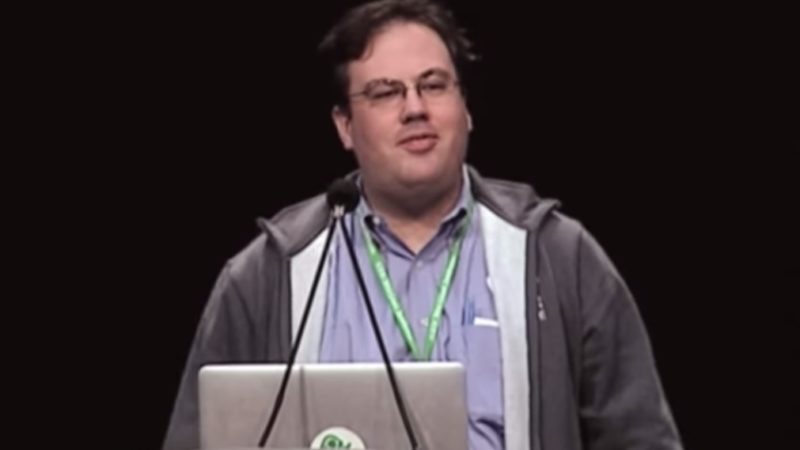Jake Beal ’96 Writes Home
Dear Waynflete:
I’m writing this letter from the air, on my way home from a scientific conference. Up in the air is one of my favorite quiet spots these days, where I’m forced to sit in one place for a while and nobody else is able to get to me. I can step back from the remarkably hectic life that I live as a scientist and take a few minutes to reflect and do things like write this letter.
Back when I was an upper schooler playing around with computers and thinking I wanted to grow up to write video games, I would never have predicted that my life would be like this. I was one of the nerdy types at Waynflete, but Waynflete never let me just retreat into an introverted world of programs and math and science. No, I learned about the unfortunate truths of our society from Debba Donovan (Curtis), and struggled to express myself in poetry and prose with Lorry Stillman. In Modern British Literature, I tried to argue with Lowell Libby that there was no such thing as symbolism (and lost). I sang barbershop and jazz in chorus and was cast as Lauren Wilkis’s father in three different plays. Even in math class, I couldn’t merely do mathematics: both Tom Campbell and Gary Hertz made me stand up and try to teach, and I will tell you that one of the scariest things I have ever faced in my life was the bored and judgmental faces of my classmates as I tried to explain what fractals were. In these and many other ways, Waynflete broadened me and prepared me for things I never knew that I would need to do.
As a scientist, I must, of course, be skilled in my special areas of expertise (for me, that’s synthetic biology and engineered self-organization). But that alone is only enough to be a technician in somebody else’s laboratory. To be a successful primary investigator, leading your own research program, you have to be many other things as well: you also have to be an administrator, and a fund-raiser, and a public speaker, and a politician, and a writer. I owe my skills in those areas to many different mentors and role models I have had over the years, and many of those people are at Waynflete.
And so I get to do, not just what somebody in an office somewhere has decided on my behalf, but things I really believe in, like helping to promote cutting edge bio-engineering education to the far corners of Indonesia. Last year, I helped organize a new section in the International Genetically Engineered Machines Jamboree (also known as iGEM), a huge synthetic biology science fair in which thousands of students around the world (mostly undergraduates) spend the summer building new organisms, and then get together in a giant meet-up in Boston in the fall to show off what they’ve done. Last year there were Taiwanese students who made better organic pheromone traps, Germans who 3D-printed safety-certified lab instruments, and an English team who re-engineered kombucha tea to cultivate cheap water filters that are now having a trial run in London’s municipal water system.
 And, in the section that I helped organize, there was an amazing group of kids from Sumbawa, Indonesia, an island that I had never heard of before, where the local honey has a gourmet cachet just like our Maine maple syrup, and who made a color-changing microbe that could be added to a drop of honey to test whether it’s the genuine article or a counterfeit that somebody’s trying to pass off as real. They were awesome, and came out of nowhere, and won the big jamboree-wide award for the team who best embodied the spirit of the whole remarkable event.
And, in the section that I helped organize, there was an amazing group of kids from Sumbawa, Indonesia, an island that I had never heard of before, where the local honey has a gourmet cachet just like our Maine maple syrup, and who made a color-changing microbe that could be added to a drop of honey to test whether it’s the genuine article or a counterfeit that somebody’s trying to pass off as real. They were awesome, and came out of nowhere, and won the big jamboree-wide award for the team who best embodied the spirit of the whole remarkable event.
And so it was that I found myself on stage in front of 2,500 rising scientists, called on to give a speech on 30 seconds notice, to praise the Sumbawagen team and to explain to everybody just why these young scientists in my section deserved their award. When I stepped to the microphone and spoke, my confidence and words rested on two solid pillars: my scientific knowledge and my comfort and experience in public speaking. These two critical foundations of my life and career both stretch back and owe much to my eight years at Waynflete.
With fond memory, and hope for the future:
– Jake Beal ’96



